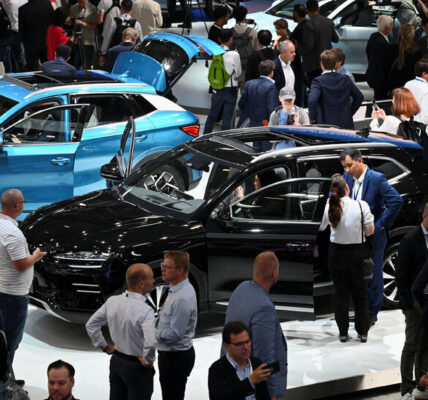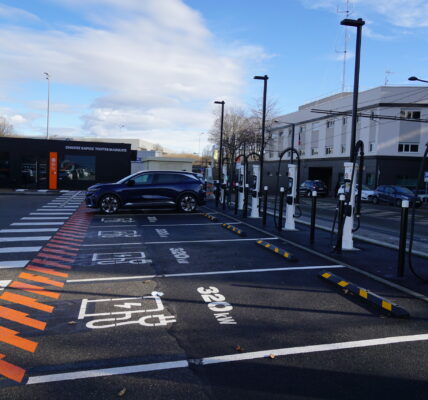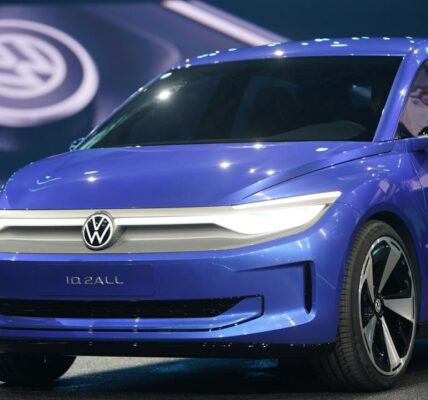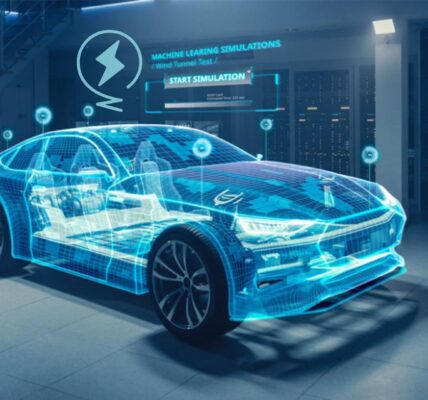Downing Street has said problems for the British car industry over a Brexit deal deadline can be resolved within the Trade and Co-operation Agreement (TCA).
Business Secretary Kemi Badenoch and UK officials have raised the issue with counterparts in Brussels ahead of a looming cliff edge when new rules covering electric vehicles (EVs) come into effect at the start of 2024.
Vauxhall’s parent company Stellantis told MPs it would be unable to keep a commitment to make EVs in the UK without changes to Britain’s agreement with the bloc.
We continue to want to work closely with the EU to find a solution to this problem. We think it can be resolved within the TCA and we want to continue to take that work forward
Under the TCA, from next year 45% of an EV’s value should originate in the UK or EU to qualify for tariff-free trade.
Without meeting the requirements, cars manufactured in the UK would face a 10% tariff if sold in the EU – and vice versa – rendering them uncompetitive, prompting warnings of an “existential threat” posed by the deadline.
A No 10 spokesman said the UK wants to “work closely” with the EU on the problem and expressed optimism that a solution could be reached within the TCA.
“We continue to want to work closely with the EU to find a solution to this problem,” Downing Street said.
“We think it can be resolved within the TCA and we want to continue to take that work forward.”
Stellantis – which also owns Citroen, Peugeot and Fiat – is the world’s fourth biggest carmaker and employs more than 5,000 people in the UK.
But the firm told a Commons inquiry that UK investments were in the balance due to the terms of the trade deal and warned the Brexit deal was a “threat” to its export business.
It called on the Government to reach agreement with the EU to maintain existing rules until 2027, rather than introduce next year’s planned changes.
Professor David Bailey, from Birmingham Business School, told the BBC that without UK manufacturing of EV batteries “I think there is a kind of existential threat to the UK car industry”.
Prime Minister Rishi Sunak, while in Japan for the G7 summit, said the UK was in talks with the EU about how to address concerns relating to auto manufacturing “more generally”.
Speaking to broadcasters on board the JS Izumo aircraft carrier in the Yokosuka naval base near Tokyo, the Prime Minister said: “It’s something that car manufacturers across Europe, not just in the UK, have raised as a concern.
“And as a result of that, we are engaged in a dialogue with the EU about how we might address those concerns when it comes to auto manufacturing more generally.”








